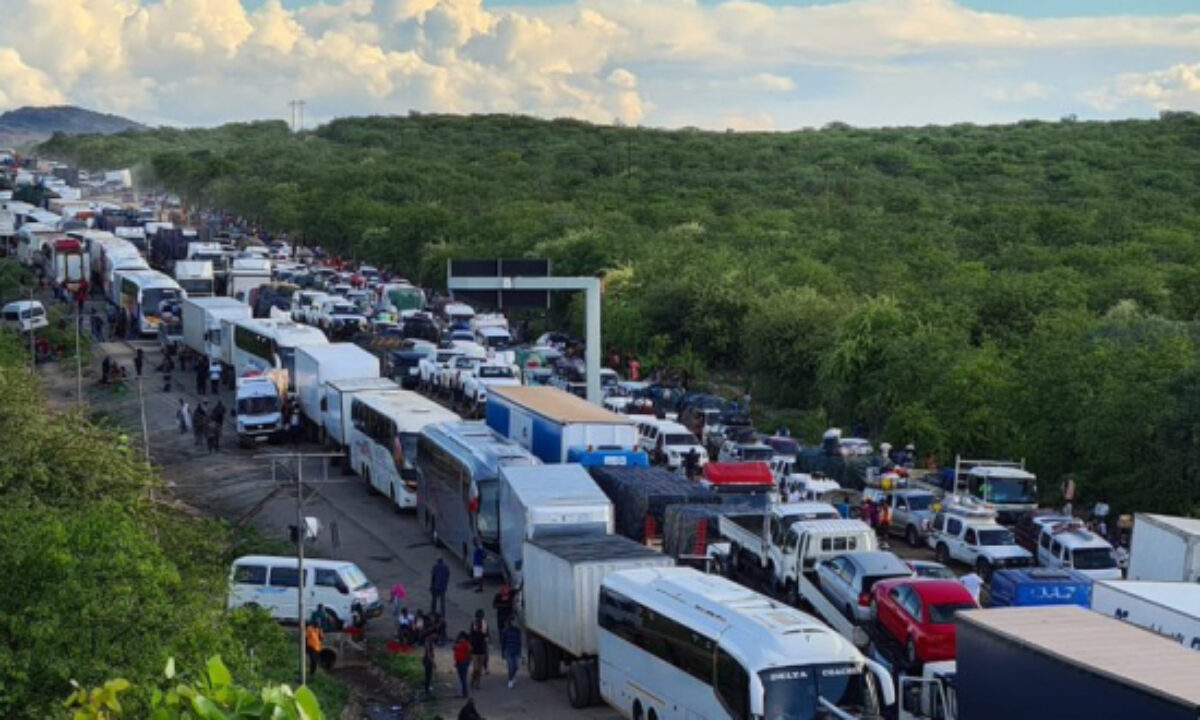THE traffic congestion and chaos that had hit Beitbridge border post – over the past eight weeks – has been cleared up, officials say.
This comes as several stakeholders, including Transport minister Felix Mhona and the Federation of East, and Southern African Transport Associations (FESATA), have stressed that the recent gridlock had nothing to do with Zimbabwean payment systems and infrastructural bottlenecks.
“The congestion at Beitbridge border post started a few weeks before the opening of the new freight terminal as a result of Covid-19 related relaxations on movement both on the Zimbabwean and South African sides..,” Mhona told a local weekly recently.
“As we are implementing measures to sustainably stem all the challenges… stakeholders must be pleased (to note) that the situation is normalising,” he said, adding the challenges “were regrettable and the government is working flat out… to remedy the situation”.
Notorious for long winding queues and heavy traffic during holiday seasons – where up to 1 200 cargo trucks and 15 000 travellers are processed daily – the situation at Beitbridge was aggravated by the upliftment of covid-19 restrictions and restoration of enhanced cross-border travel in recent months.
And as “teething problems” associated with the first phase of the US$300 million border upgrade mounted since October 11, the painful logjams – where lorries were stuck at the border for up to two weeks – were only cleared after interventions by a joint and high-powered ZimBorders Consortium (ZimBorders), Zimbabwe Revenue Authority (Zimra) and regional transport sector delegation.
As it is now, freight movers are going through in record time courtesy of the “airport-like and state-of-the-art facilities” installed by the country’s private sector partner.
Mike Fitzmaurice, the FESATA chief executive, said the “chaos was exaggerated as it was largely caused by a culture of corruption and whereby some people were used to bypassing automated, and incorruptible compliance systems”.
“The biggest problem… is that most transporters (were) arriving at the border without their paperwork in order and just parking at Beitbridge,” he said, in remarks suggesting importers and transporters were also not keen on utilising things like Zimra’s preclearance facility.
“…there is an inbred culture… that has been going on for decades where they have been able to cross with unprocessed documents (after) a ‘facilitation fee’,” Fitzmaurice said, adding it was “unfair to blame ZimBorders, as their payment platform was the only gateway in place and complaints that it was not working was just nonsense being peddled by self-serving drivers, and other parties”.
Thus, Transport Operators Association of Zimbabwe chairman Albert Bere has expressed relief at the decongestion of the key southern Zimbabwe entry point, and his organisation was “cautiously optimistic that the latest developments would be sustained”.
“Our scouts on the ground (say) the situation has significantly improved… but we are not certain that the challenges are completely behind us now,” he said amid expectations that the clearing of congestion would encourage haulage truckers to return to the shorter and efficient Beitbridge route.
On the other hand, Confederation of Zimbabwe Retailers president Denford Mutashu has confirmed an improvement in the flow of goods and services as positive off-shoots of the restoration of order at Beitbridge kicks in.
An innovative joint venture partnership between the Zimbabwe government and ZimBorders, the Beitbridge modernisation project is being done under a 17 year-long concession and “to maximise revenue” at the key border point to Harare’s US$3 billion economy with South Africa.

